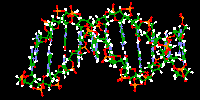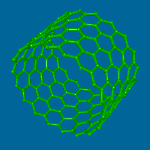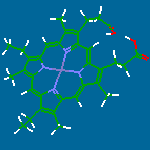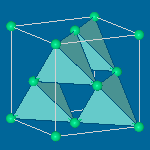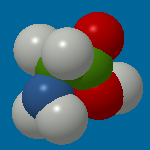News
25th February 2022
GAMGI 0.17.5 is out, changes can be seen
here.
11th March 2019
Renewed the domain name registration for
gamgi.org until
2026.
11th March 2014
Started using
Git
to manage GAMGI development.
15th January 2014
Renewed the
EU
trademark
GAMGI until
2024.
1st January 2014
Updated the source code and documentation license to
GPL v3.
26th December 2013
Started using
sha256sum
to checksum all distribution files.
8th April 2013
Added new mirrors:
http://gamgi.ist.utl.pt/,
http://atom.ist.utl.pt and
ftp://atom.ist.utl.pt.
Mission
Our goal is to provide a
free
package to construct, view and analyse atomic structures, as powerful
and simple to use as possible.
GAMGI aims to be useful for: 1) the scientific community working
in atomistic modelling, who needs a graphic interface to build
and analyse atomic structures; 2) the scientific community at large,
who needs a graphic interface to study atomic structures and to prepare
images for presentations; 3) teaching the atomic structure of matter
in schools and universities, even inviting students to run GAMGI at home;
4) science promotion, in exhibitions and science museums.
Achievements
GAMGI can determine any point group of symmetry, can build crystals for any space group of symmetry, can build Random Close Packing structures, Voronoi and coordination polyhedra for arbitrary structures. GAMGI comes with comprehensive atomic data, including ionic radius and isotopic data.
GAMGI can handle an arbitrary number of independent windows, layers (with different referentials, projections, viewports and visibilities), lights (directional, positional and spot), 3D text fonts (extruded and stroked). Actions can be performed in a single object or in a list of objects previously selected. GAMGI comes with detailed but concise documentation, just one click away for each task.
Shortcomings
Currently GAMGI cannot handle alpha helix or beta sheet protein
secondary structures, cannot calculate struture factors or diffraction
patterns, cannot calculate orbitals, cannot show data graphics, cannot
handle .pdb, .jmol and .cif files, cannot export or import
coordination or Voronoi polyhedra. Support to build molecular
structures is sketchy.
Requirements
GAMGI can be installed on any computer running Linux/Unix
with the standard X Window System. GAMGI requires the following
libraries:
Gtk,
Mesa,
Gtkglext,
Expat
and
Freetype.
GAMGI 0.14.8 or above requires GTK 2.18 to compile.
To run properly, GAMGI requires a graphics environment
with at least 16 bits per pixel, plus a 3-button mouse.

